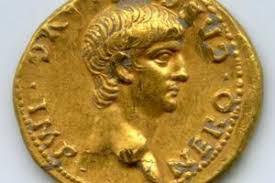 Believers say that without God we can’t know right from wrong. The problem is: how does God know right from wrong? As Socrates put it, is something good because the gods love it, or do they love it because it is good? If the former, it’s just arbitrary, like a parent ending an argument with “because I said so.” But if God has reasons for his moral rules, then we should be able to figure them out ourselves, and don’t need him.
Believers say that without God we can’t know right from wrong. The problem is: how does God know right from wrong? As Socrates put it, is something good because the gods love it, or do they love it because it is good? If the former, it’s just arbitrary, like a parent ending an argument with “because I said so.” But if God has reasons for his moral rules, then we should be able to figure them out ourselves, and don’t need him.
This raises the question of whether moral rules can be objectively determined. Objectivity means being based on facts, not mere (subjective) opinion. Are there moral facts? Out there, for us to ascertain? Philosopher David Hume famously said we can’t get an “ought” from an “is.” That is, we can’t judge how things should be from how things are.
Some conclude this leaves any supposed moral precept on the shaky quicksand of subjective personal opinion. But let’s step back and ask: why should we have morality altogether? What purpose does it serve? “So we can do what’s right,” you might reply. But why does that matter?
Here’s why. Because it makes life better. Leave aside whether you, personally, do what’s right instead of wrong. A world where nobody does would make for rotten lives — “nasty, brutish, and short,” as Hobbes wrote. Quite simply, morality enables us to get along together maximizing happiness and pleasure and minimizing pain and suffering.

So there we have the essence of a morality that’s as close to being objective fact as is possible. Morality means doing what (all else equal) increases happiness and pleasure and reduces pain and suffering. Everything else is corollaries.
Notice that the resulting moral rules are not arbitrary. It’s not as though any old set of moral norms would serve the function just as well as any other.

This refutes the idea that atheists have no reason to be moral. A command from on-high (be it God, a king, or president) by itself is not a good reason for obedience, absent some independent reason for it. Again, if we understand that other reason, we don’t need the command. Atheists follow morality, just like most people (even before gods were invented), because doing so enables us all to live together in the best way possible. Indeed, that was bred into us by evolution, because tribes that practiced it survived better than others.

Some might object that all this leaves morality a mere human construct; and there must be something higher. Well, there isn’t. Our humanity is all we’ve got. And it’s enough.*
Preachers rant about supposed American moral decline. But much of what’s lamented, like tolerance for homosexuality, is actually moral advancement. Yet today we do see a sharp downward lurch in America’s moral condition, with tolerance and even enthusiasm, especially among professed religious believers, for a president who’s a flagrant moral creep.

(For some ideas in this essay I credit one by Ronald Lindsay, “How Morality has the Objectivity that Matters — Without God,” in Free Inquiry magazine, Aug/Sep 2014.)
* This thirst for something outside of our moral systems to give them validity recalls those who consider money illusory without a gold standard.

